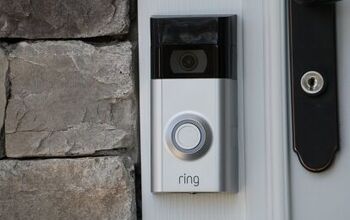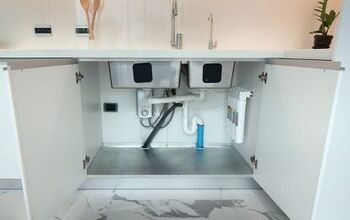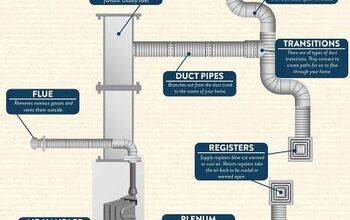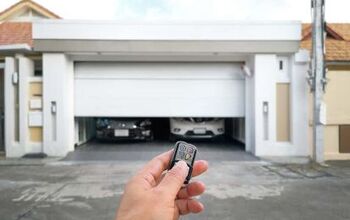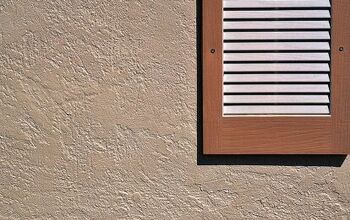Condensing Vs. Non-Condensing Boilers: Which One Is Better?

Your plumbing contractor tells you it is time to replace your old boiler. Now you face several decisions. The first decision that faces you is replacing your old boiler with a new high-efficiency condensing boiler or sticking with a more traditional non-condensing boiler. There are advantages and disadvantages to both.
New energy-efficient condensing boilers can give you an efficiency rating of up to 98 percent. Modern traditional non-condensing boilers typically only manage an efficiency rating of 78 percent. Condensing boilers are usually more expensive to purchase and install. A detailed survey of your home will give you a better understanding of which type of boiler best fits your needs.
Choosing which type of boiler to install is not an easy decision. Consulting with a trained technician who can survey your home will give you the data to make easier decisions. It would be best to understand the difference between condensing and non-condensing boilers, how they work, and under what conditions each performs to its maximum.
Do You Need a Heating and Cooling Contractor?
Get free, zero-commitment quotes from pro contractors near you.

Non-Condensing Boilers
You can find traditional non-condensing boilers in many homes. In the US, traditional non-condensing boilers are still available and installed today. In Europe and the UK, the sale and installation of non-condensing boilers are banned. More people are opting to replace their non-condensing boilers with a more efficient condensing boiler.
How Does a Non-Condensing Boiler Work?
Non-condensing boilers burn fuel to create heat. This fuel can be natural gas, propane, butane, or fuel oil. The heat created by the combustion transfers to the water circulating through the boiler in a heat exchanger.
Traditional non-condensing boilers typically manage to transfer approximately seventy-eight percent of the heat energy to the water. The rest of the heat energy goes up through the flue to the exterior of your home.
New non-condensing boilers employ several techniques to make this heat transfer more efficient, including:
- More efficient heat transfer systems
- Intelligent controls that monitor the combustion process
- Combustion systems that are more fuel-efficient and produce more heat
There are some situations where a non-condensing boiler makes more sense than installing a more expensive condensing boiler. We will look at those situations later in this article.
What are the Advantages of a Non-Condensing Boiler
Non-condensing boilers do have some advantages over condensing boilers. These advantages can, under certain circumstances, make a non-condensing boiler a better choice than a condensing boiler for your home. Some of these advantages include the following.
- Cost – Traditional non-condensing boilers are cheaper to buy and, generally, cheaper to install than a comparable condensing boiler. A new non-condensing boiler will usually cost between $1,400 and $4,000. The size of the boiler and the type of fuel are the big factors in determining the cost of the non-condensing boiler.
- Installation – Installing a non-condensing boiler is straightforward. If you are replacing a non-condensing boiler, the same flue pipe is usable for the new boiler in many cases.
- Simple Operation – Non-condensing boilers are usually much simpler in operation. There are no condensing units, holding tanks, lift pumps or sophisticated control units. Typically, you won’t notice much difference in how your boiler operates once you install the new non-condensing boiler.
Are there Disadvantages to a Non-Condensing Boiler?
As with anything, there are always disadvantages. You must consider these disadvantages when making your decision between a non-condensing or condensing boiler.
- Lower Efficiency – Non-condensing boilers are 15 to 20 percent less efficient than a comparable condensing boiler. This lower efficiency can translate into higher fuel bills over the life of the boiler. In addition, non-condensing boilers put more unused heat into the atmosphere, which, for many, is an environmental concern.
- Venting and Exhaust – In a new installation, installing a non-condensing boiler requires a special vent pipe and a route that allows the vent pipe to exit through the roof. The vent pipe must be rated for the installation to withstand temperatures up to four hundred degrees Fahrenheit. The vent must exit above the roof because of the heat and the toxic components of the exhaust gases.
Non-condensing furnaces still have their place in some homes, and many builders and plumbers will sell and install a non-condensing boiler when requested. However, under most circumstances, the additional cost of a condensing furnace is recommended.
When is Installing a Non-Condensing Boiler a Good Idea?
There are reasons to opt for a non-condensing boiler as either a new installation or a replacement. Some of these reasons include:
- Replacing an existing non-condensing boiler with a new non-condensing boiler is usually easier and cheaper than installing a condensing boiler.
- If budget is a concern, non-condensing boilers are less expensive to purchase and install than condensing boilers.
- Non-condensing boilers have fewer parts that require maintenance than condensing boilers. This simpler design can make ongoing maintenance easier and repairs, when they are needed, much cheaper.
- New non-condensing boilers usually have a smaller footprint than older boilers giving you more options when choosing where to put a new boiler
- New non-condensing boilers are not as efficient as condensing boilers. However, modern designs and technology have improved the efficiency of non-condensing boilers, and you will experience savings over your old boiler.
The services of a trained boiler technician who can survey your home and your usage are invaluable to making this decision. Evaluating the cost versus the potential savings is one of the issues you must consider.
Condensing Boilers
Condensing boilers offer several advantages for replacement in an existing home or new construction. Understanding how a condensing boiler operates and how it can impact your home is important to make an informed decision. In general, most people choose a condensing boiler rather than a non-condensing traditional boiler.
How Does a Condensing Boiler Work?
Non-condensing boilers send 20 percent of the available heat up the vent pipe to the outside. Condensing boilers use more sophisticated heat exchange technology to capture up to an additional 15 percent of that wasted heat. This recaptured heat transfers to the water in the boiler.
While capturing this extra heat, the combustion gases are cooled further to the point that the water vapor and other compounds in the hot gases condense. A means of capturing this condensate includes a holding tank and, usually, a pump to send the water to a drain.
Condensing boilers require more mechanical parts, more expensive materials to deal with the corrosive nature of the collected water, and more complex control systems. These items all add cost to the condensing boiler, but when working properly, make a condensing boiler much more efficient than a non-condensing boiler.
What are the Advantages of a Condensing Boiler?
Condensing boilers offer several advantages over a non-condensing boiler that make these units much more popular. These advantages can easily outweigh the additional cost of purchasing and installing a condensing boiler.
- Energy Efficiency – By design, condensing boilers are more energy-efficient than non-condensing boilers. This energy efficiency translates into fuel savings over the life of the boiler. Most condensing boilers are 15 to 25 percent more efficient than comparable non-condensing boilers.
- Environmentally Friendly – Condensing boilers are much more environmentally friendly than comparable non-condensing boilers. Condensing boilers further cool the exhaust gases to capture heat that would normally be exhausted into the atmosphere. These cooled gases require less robust exhaust vents and put less heat into the atmosphere.
- Lower Operating Costs – Condensing boilers are more fuel-efficient than non-condensing boilers. Burning less fuel to generate the same amount of hot water means lower fuel costs over the boiler’s life.
Some places are now mandating the installation of condensing boilers because of these efficiency and environmental advantages. However, in the United States, there are still more non-condensing boilers than condensing boilers installed annually.
Are There Disadvantages to Condensing Boilers?
Several disadvantages to condensing boilers are well known and must be considered if you are deciding which style of boiler to install. Among these disadvantages are:
- Cost – The complexity and unique requirements of a condensing boiler equals higher initial costs. You can expect to pay between $6,000 and $11,000 for a new high-efficiency condensing boiler. Of this price, $1,500 to $2,500 is labor for the installation. This price can be almost double the cost of a comparable non-condensing boiler.
- Maintenance – Condensing boilers require more maintenance and attention than comparable non-condensing boilers. Condensing boilers require a more sophisticated system to operate properly.
- Installation – If you install a condensing boiler to replace a non-condensing boiler, you can expect higher installation costs. Condensing boilers require different vent pipe systems and a drain near enough to collect the condensed water.
- Shorter Life – The water the condenses in a condensing boiler is acidic. This acidic water often shortens the life of the boiler. On average, a condensing boiler has a life span of about 15 years. A traditional non-condensing boiler can last 20 years or more.
When Does it Make Sense to Install a Condensing Boiler?
Overall, condensing boilers make more sense than installing a non-condensing boiler. As you make your decision about a new boiler, you should consider these reasons to install a condensing boiler.
- Overall, you can expect to recoup the cost difference in the fuel savings of the condensing boiler
- The advantages of a more energy-efficient and environmentally friendly condensing boiler are hard to quantify. Studies are being conducted now that may provide answers to these questions shortly.
- There are some safety factors to consider. Non-condensing boilers route hot toxic combustion gases up and out of your home. These gases can leak into your home and create a dangerous situation. Condensing boilers lower the temperature of the exhaust gases making them less likely to leak back into your home.
- Overall, environmentally and financially, the higher initial cost of a condensing boiler installation makes sense for most homeowners.
In general, most HVAC and plumbing contractors recommend replacing any new boiler, including a condensing boiler. In some areas, building codes mandate installing only condensing boilers.
Do You Need a Heating and Cooling Contractor?
Get free, zero-commitment quotes from pro contractors near you.

Which Type of Boiler Makes More Sense?
Deciding which type of boiler is best for you and your home can be confusing. Advice from a qualified plumber or HVAC technician can make the decision easier. However, in most instances, installing a high-efficiency condensing boiler is the best choice for home homes.

Dennis is a retired firefighter with an extensive background in construction, home improvement, and remodeling. He worked in the trades part-time while serving as an active firefighter. On his retirement, he started a remodeling and home repair business, which he ran for several years.
More by Dennis Howard



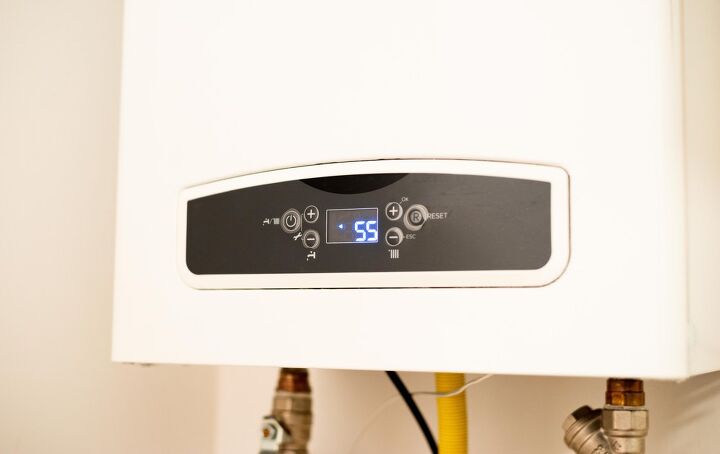
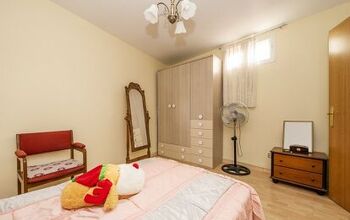





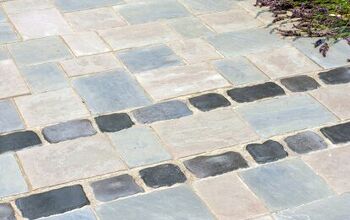
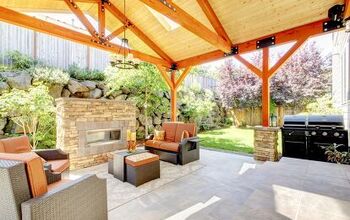
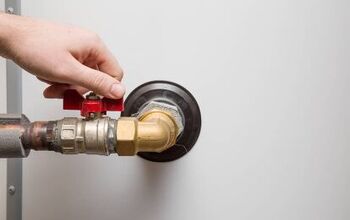
![10 Best Scroll Saws for 2022 [Ultimate Reviews & Buyer's Guide]](https://cdn-fastly.upgradedhome.com/media/2023/07/31/9070684/10-best-scroll-saws-for-2022-ultimate-reviews-buyer-s-guide.jpg?size=350x220)
